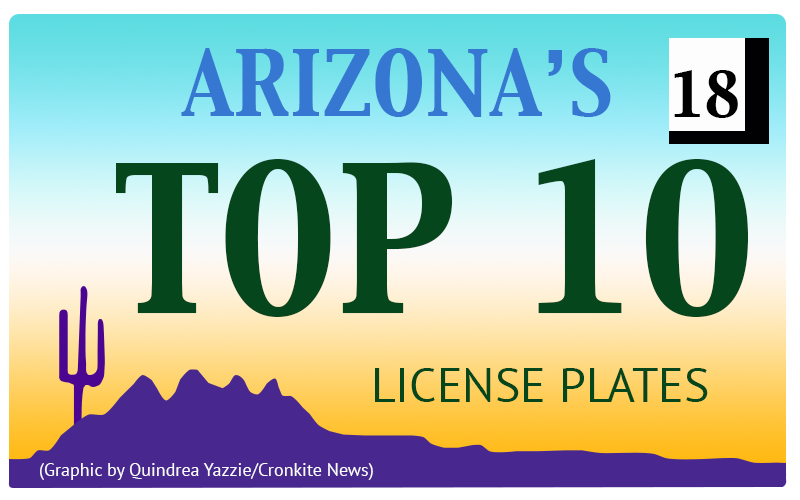PHOENIX – The specialty license plate “In God We Trust” has come under fire because the group behind the plate is designated as a hate group by the Southern Poverty Law Center for its anti-LGBTQ views.
Secular Coalition for Arizona, a nonprofit that promotes the separation of church and state in government, asks on its website “Why is Arizona money funding a hate group?”
Alliance Defending Freedom, a Scottsdale-based Christian nonprofit whose mission is to “defend religious liberty,” has collected $827,000 from sales of the license plates since 2014, according to a spokesman for the Arizona Department of Transportation. The agency provides and distributes specialty plates that have been approved by legislators.
“That’s their right to have their hateful views and to push their hateful policies, but we shouldn’t be using the government to help them raise the money to do it,” said state Sen. Juan Mendez, D-Tempe, who is proposing two bills to offer more transparency on specialty plates.
This is the first time the group has received any pushback on the license plate, said Kristen Waggoner, senior vice president of the U.S. legal division for the alliance.
“Secular Coalition of Arizona is targeting Alliance Defending Freedom and the license plate because it disagrees with the view that the license plate expresses,” she said.
For each license plate sold or renewed annually, the group collects $17. In fiscal year 2018, 11,169 license plates with the motto were sold or renewed.
The state offers more than 60 specialty license plates, according to ADOT. To create a new plate, a state lawmaker must introduce a bill and have it approved by both houses of the Legislature. Motorists can request specialty and custom plates through ServiceArizona.
ADOT’s role is to provide the plates to customers “and distribute the funds generated from the plate sales as required in the law,” an agency spokesman said in an email.
Mendez has introduced two bills, SB 1462 and 1463, that would eliminate the “In God We Trust” plate and require ADOT to keep a publicly-accessible database that includes the names and missions of the organizations that receive money from the plates.
“The whole license plates program is a problem, and it’s just ripe for these kinds of people to take advantage of the state government to help them raise money,” Mendez said.
Video by Nicole Hernandez/Cronkite News
Sign up for CRONKITE DAILY to catch up on the latest news.
